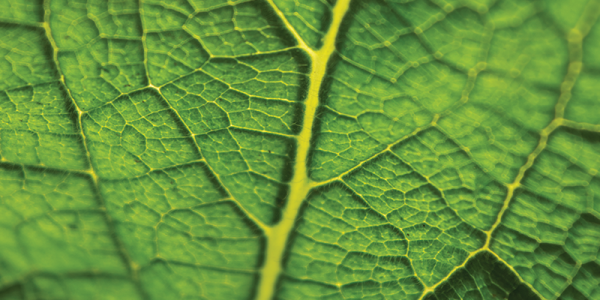Explore Critically Important Relationships between People, Planet, and Health
From air quality to infectious diseases, climate events to environmental exposures, the connections between our planet and human health are becoming increasingly clear. Around the world, communities are facing challenges like extreme weather events, food and housing insecurity, and air pollution—affecting both individuals and public health. Addressing these urgent issues requires a deep understanding of the complex relationships between environmental change and human well-being. By studying these connections, we can work toward solutions that promote healthier communities and a more sustainable future. This Ampersand program applies an interdisciplinary lens to the local and global environmental challenges that have impacted human health in St. Louis and beyond. We will explore the different methods used by public health officials, research biologists, environmental scientists, veterinarians, and doctors to address these grand challenges. You will learn from local experts, examine patient case studies, build relationships with community partners, visit research labs and field sites where groundbreaking science happens, and work towards proposing your own project.
What will you get out of this program?
In the fall, you will take a 3-credit introductory course that introduces important concepts to people, planet, health, including topics across land, water, air, zoonotic disease, nutrition and food justice. You will gain exposure to many different types of jobs and problem solving from researchers, practitioners, and institutions through guest speakers and site visits. In the spring, you will take a 3-credit course on One Health, which dives more deeply into the important links between human, animal, and environmental health. You will also take a 1-credit seminar course that covers professional development skills, deeper dives with local researchers and practitioners, and skills for entering research and applied internship work. By the end of the semester, you will have prepared a two-page research or project proposal and be prepared to engage in optional summer or future academic year mentored internship research experience or internship experience with one of our community partners. Completion of this program provides two courses that count toward the introductory course requirements for the Environmental Analysis Major or Environmental Studies Minor through the Environmental Studies Program
How will this program help you define yourself and your goals?
- Exposure to wicked global challenges & solutions: You will be introduced to local and global environmental challenges that impact human health. If you are interested in medical school, veterinary school, environmental studies, public health, or other science fields, exploring these challenges will be a critical component of your future work.
- High impact teaching & learning: We use active classroom environments and collaborative, project-based learning to engage students in meaningful learning. Our program aligns with the Literacies for Life & Career goals of the College of Arts & Sciences as well as many pre-health competencies.
- Cohort & community: You will build connections with each other, with faculty, with researchers, and with the community to deeper understand the importance of environmental challenges to human health.
- Experiential learning: You will meet researchers and practitioners on site at different types of institutions working to address challenges around people, planet, health. You will develop a research grant or proposal that could lead to early engagement in research experiences and internships with meaningful impact.
- Meaningful relationships: You will develop relationships with several faculty in science & public health who will serve as mentors and advisors and who may provide letters of reference in your future endeavors. You will join a broader community of other students, faculty, and community members interested in the connection between the environment and human health.
- Exposure to career options and training: This program might benefit you if you are interested in careers in medicine, public health, veterinary medicine, epidemiology, environmental research
Learning Goals
Upon completion of the program students will be able to:
- Summarize the biological, chemical, and physical agents in air, water, soil, and food that can impact human health
- Connect local and global environmental challenges to symptoms, diseases, and health concerns that impact humans, often unequally depending on socioeconomic factors. (PC Cultural awareness)
- Integrate environmental science knowledge with human health concerns to identify, diagnose, and communicate issues (LLC Integrative thinking, PC Critical Thinking)
- Convey the importance of the environment on human health while adapting communication style and content to appropriate audiences (LLC Communication Dexterity, PC Oral communication)
- Plan or participate in civic or community action to promote or advocate for environmental and human health (PC: Service orientation)
- Collaborate responsibly and equitably with fellow students, faculty, and community members recognizing and valuing the perspectives and needs of diverse stakeholders (LLC Collaboration and Leadership, PC Teamwork and Collaboration)
- Be prepared to participate in summer or academic year research, inquiry, or community engaged internship work (PC Scientific Inquiry)
Note: Above, “LLC” indicates alignment with WashU Literacies for Life and Career; “PC” indicates alignment with Premed Competencies for the Association of American Medical Colleges.





